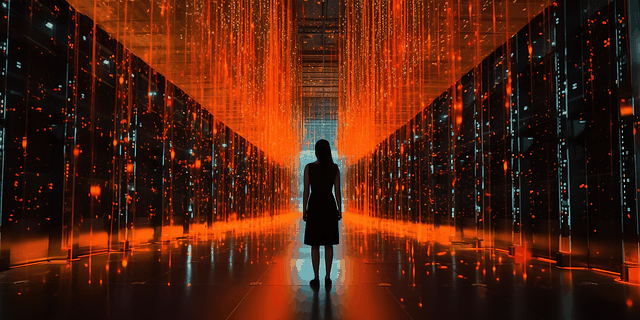A supercomputer is an extremely powerful computing machine with the ability to process massive amounts of data and perform complex calculations at extremely high speeds. These machines are used for tasks that require immense computational power, such as weather modeling, nuclear simulations, molecular modeling, and other scientific and engineering applications.
Key characteristics of supercomputers include:
Processing Power: Supercomputers are designed to handle a huge number of calculations per second (measured in FLOPS - Floating Point Operations Per Second). This processing power allows them to tackle complex problems that would be impractical or impossible for traditional computers.
Parallel Processing: Supercomputers often use parallel processing, where multiple processors work simultaneously on different parts of a problem. This parallelism allows for faster computation and the ability to handle large datasets.
Specialized Architecture: Supercomputers may have a unique and specialized architecture tailored to the specific tasks they are designed to perform. This can include vector processing, custom hardware accelerators, or other optimizations.
High-Speed Interconnects: Communication between the individual processors in a supercomputer is crucial. High-speed interconnects allow for efficient data exchange and coordination among the different components.
Large Memory Capacity: Supercomputers typically have a significant amount of RAM (Random Access Memory) to support the processing of large datasets and complex algorithms.
Cooling Systems: The immense computational power of supercomputers generates a substantial amount of heat. Advanced cooling systems, such as liquid cooling or specialized air-cooling solutions, are essential to maintain optimal operating temperatures.
Supercomputers play a crucial role in advancing scientific research, solving complex problems, and simulating real-world scenarios. Organizations and research institutions around the world use supercomputers to tackle challenges in fields like climate modeling, astrophysics, drug discovery, and more. Examples of supercomputers include Summit, Fugaku, and Tianhe-2. The field of supercomputing is dynamic, with new and more powerful systems regularly being developed to push the boundaries of computational capability.
A supercomputer is an extremely powerful computing machine with the ability to process massive amounts of data and perform complex calculations at extremely high speeds. These machines are used for tasks that require immense computational power, such as weather modeling, nuclear simulations, molecular modeling, and other scientific and engineering applications.
Key characteristics of supercomputers include:
Processing Power: Supercomputers are designed to handle a huge number of calculations per second (measured in FLOPS - Floating Point Operations Per Second). This processing power allows them to tackle complex problems that would be impractical or impossible for traditional computers.
Parallel Processing: Supercomputers often use parallel processing, where multiple processors work simultaneously on different parts of a problem. This parallelism allows for faster computation and the ability to handle large datasets.
Specialized Architecture: Supercomputers may have a unique and specialized architecture tailored to the specific tasks they are designed to perform. This can include vector processing, custom hardware accelerators, or other optimizations.
High-Speed Interconnects: Communication between the individual processors in a supercomputer is crucial. High-speed interconnects allow for efficient data exchange and coordination among the different components.
Large Memory Capacity: Supercomputers typically have a significant amount of RAM (Random Access Memory) to support the processing of large datasets and complex algorithms.
Cooling Systems: The immense computational power of supercomputers generates a substantial amount of heat. Advanced cooling systems, such as liquid cooling or specialized air-cooling solutions, are essential to maintain optimal operating temperatures.
Supercomputers play a crucial role in advancing scientific research, solving complex problems, and simulating real-world scenarios. Organizations and research institutions around the world use supercomputers to tackle challenges in fields like climate modeling, astrophysics, drug discovery, and more. Examples of supercomputers include Summit, Fugaku, and Tianhe-2. The field of supercomputing is dynamic, with new and more powerful systems regularly being developed to push the boundaries of computational capability.




